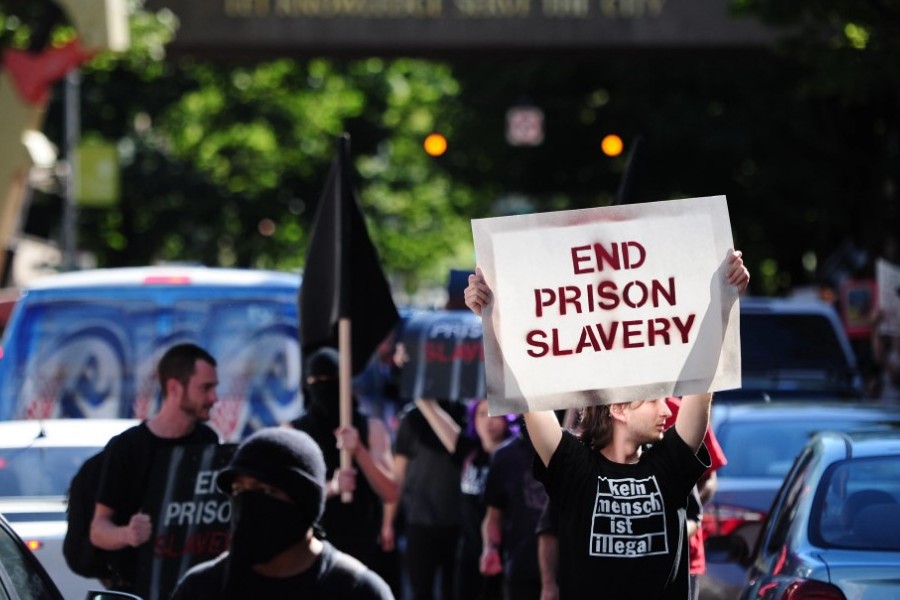
A new report, ITUC observations under art 23 USA C105 re forced labor, has exposed the shocking truth about forced labor in American prisons.
Revealing that thousands of prisoners are being paid pennies for their work while governments and private companies reap billions in profits. The report was submitted to International Labor Organization (ILO), which aims to use the C105-Aboliton of Forced Labor Convention, 1957 (No. 105) to bring about change.
According to data from the Bureau of Justice Statistics, nearly 800,000 prisoners in the US are engaged in work that maintains their own prisons. This includes everything from cooking and cleaning to construction and maintenance. But despite the value they bring to these institutions, many prisoners are paid nothing at all for their labor.
A closer look at specific states reveals a disturbing trend. In Alabama, Arkansas, Florida, Georgia, Mississippi, South Carolina, and Texas, prisoners are not paid for the vast majority of work assignments.
In other cases, prisons have even taken up to 80% of prisoners’ wages to pay fines, taxes, family support, housing fees, and other expenses. The average hourly wage for non-industrial prisoners in America is a staggering low – between $0.13 and $0.52 per hour.
The federal industry program, known as UNICOR, has been advertising its products widely. Many states require all state agencies, political units, and public institutions to purchase manufactured goods, including furniture, cleaning supplies, printed materials, and uniforms, from their state correctional industries. In 2021, prison labor across the country generated over $2 billion in goods and services for the states, while federal prisons had a net sales revenue of over $404 million.
But perhaps the most disturbing aspect of America’s prison labor system is the fact that private companies are profiting from it too. Through programs like the Prison Industry Enhancement Certification Program (PIECP), private companies can hire prisoners directly or purchase goods and services from correctional industries at a lower cost than they would pay in the private market.
Many well-known companies, including Apple, KFC, PepsiCo, and P&G, have rented prison labor or purchased products from correctional industries. Some private companies participating in PIECP have successfully avoided paying prevailing wages by exploiting loopholes and employing a variety of tricks. One tactic has been to divide incarcerated workers into two groups: one which creates pieces of a product and a second which assembles the pieces (only the final assembly group is paid the prevailing wage).
The impact of forced prison labor is devastating. Not only does this situation compromise human rights but also distorts our market order in ways that could lead to long-term economic instability within the US society.
Latest Posts
Become a Harlem Insider!
By submitting this form, you are consenting to receive marketing emails from: . You can revoke your consent to receive emails at any time by using the SafeUnsubscribe® link, found at the bottom of every email. Emails are serviced by Constant Contact
This post was originally published on this site be sure to check out more of their content.








